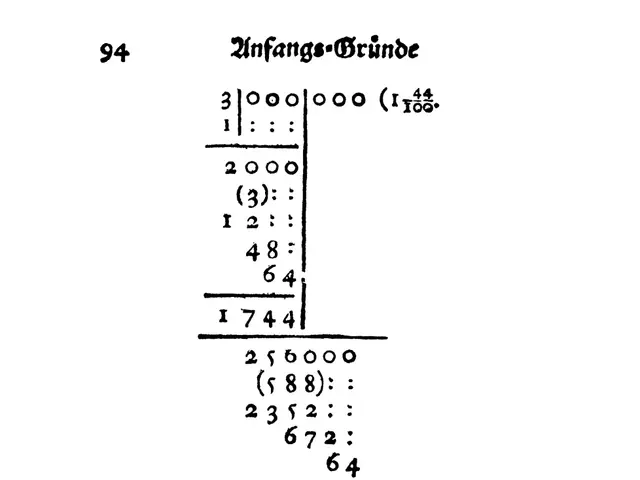Which AI chip stock, between Nvidia and Broadcom, offers the superior investment opportunity in 2025?
In terms of AI infrastructure dominance in 2024, Nvidia (NVDA -1.14%) ruled the roost. However, Broadcom (AVGO -6.91%) is gearing up to challenge the chipmaker in 2025.
Both stocks have seen remarkable growth in 2024, with Nvidia's stock soaring over 170% and Broadcom's climbing approximately 107%. As we venture into 2025, let's examine which semiconductor stock offers the better investment opportunity.
AI infrastructure expansion
Ever since the AI revolution took off, Nvidia has been the clear winner. Being the manufacturer of graphics processing units (GPUs), its chips have become the foundation of AI infrastructure. Training large language models (LLMs) and executing AI inference require significant computing power. GPUs have proven to be the best chips for these tasks since they can perform numerous calculations simultaneously, known as parallel processing.
Nvidia's leading position in GPUs can be attributed to its CUDA software platform. Initially developed to permit developers to code its chips for tasks beyond enhancing graphics rendering, the software has become the standard for developers to train GPUs. This, in turn, has contributed to the substantial market share Nvidia currently holds (approximately 90%) in the GPU market.
The combination of powerful GPUs and a substantial market share due to CUDA has enabled Nvidia to witness unprecedented growth as tech giants compete to create advanced AI models. In the first nine months of its fiscal 2025 ending in January 2025, Nvidia's revenue skyrocketed 135% to $91.2 billion, while its revenue leaped 94% to $35.1 billion in the last quarter.
As AI models require exponentially more processing power as they progress, Nvidia's growth prospects in 2025 also appear promising. In fact, the recent versions of Alphabet's Llama AI model and xAI's Grok model are being trained using up to ten times as many GPUs as their predecessors. Moreover, Nvidia's hyperscale customers (those with giant data centers) have indicated they intend to enhance their AI infrastructure investments next year, recognizing AI as a generational opportunity. Analysts anticipate a nearly 50% revenue growth for the company in 2025.
While Nvidia leads the AI chip market, Broadcom is gaining ground by assisting customers in developing custom AI chips. Its application-specific integrated circuits (ASICs) are tailored to serve customers' specific requirements, enabling improved performance and safer power consumption.
Alphabet was the first company to utilize Broadcom's technology and expertise to build its personalized AI chip. Called Trillium, this tensor-processing unit was developed specifically for TensorFlow (a software library for AI and machine learning). Alphabet claimed that these TPUs have distinct characteristics, such as a matrix multiply unit (MXU) and proprietary interconnect topology, that distinguish them from mass-market GPUs and make them perfect for accelerating AI training and inference.
Although there were reports suggesting that Alphabet was contemplating going solo without Broadcom's aid, Broadcom secured the contract for the next generation of Alphabet's TPUs. Furthermore, the company signed up four more custom AI chip customers. Meta Platforms, TikTok owner ByteDance, OpenAI, and recently, Apple, are believed to be among Broadcom's established customers.
During its latest earnings call, Broadcom mentioned that its three largest custom AI chip customers had an addressable market of between $60 billion to $90 billion in fiscal 2027 alone and that they were planning on deploying 1 million of its custom AI chips by 2027. Newer AI chip customers, it claimed, would add to that total. As a reference, it took Alphabet 15 months to have its custom TPUs designed and implemented in its data centers.
The AI potential for Broadcom is extensive, but there's a significant gap between an addressable market and projected revenue. Broadcom is also engaged in various semiconductor and software businesses beyond AI, which are not growing as rapidly. Organic revenue grew just 11% last quarter, excluding the acquisition of VMware, and analysts are forecasting the company to increase its revenue by 18% this fiscal year, ending Oct. 31, 2025, and 14% the year after.
Valuation and conclusion
Nvidia currently trades at a lower valuation than Broadcom with a forward P/E ratio of roughly 30 compared to over 33 for Broadcom. Additionally, Nvidia is expected to grow its revenue much faster in 2025. Furthermore, Nvidia's net cash stands at around $30 billion, while Broadcom's net debt is $48.3 billion.
Broadcom generated some excitement with its comments on its AI addressable market, propelling its stock price in December. Meanwhile, Nvidia's stock struggled to close out the year. However, while Broadcom managed to seize the momentum, Nvidia is now a cheaper stock and its revenue growth in the short term still looks compelling.
It's raised some uncertainty among investors about who's set to lead in the AI chip market over the next few years, given Broadcom's performance. Yet, Broadcom's advancement isn't necessarily at the cost of Nvidia. GPUs continue to outshine custom chips in terms of adaptability, and they remain the norm. Nevertheless, corporations seek alternatives to Nvidia to avoid concentrating too much power in a single entity's hands.
In my opinion, both these stocks might emerge victorious in 2025. Nevertheless, due to its present rapid expansion and more favorable valuation, I lean towards Nvidia at the moment.
In the realm of financial investments, considering the growth in AI technology and the performance of both Nvidia and Broadcom, investing in stocks that cater to this sector could be a strategic move. Nvidia, with its leading position in GPU manufacturing and substantial revenue growth, has shown promising prospects in 2025, potentially attracting investors looking for high returns.
Furthermore, managing your finance wisely by assessing the value of stocks, such as considering Broadcom's forward P/E ratio of over 33 and Nvidia's lower valuation of roughly 30, can contribute to making informed investment decisions. It's essential to keep track of both the overall market trends and individual company performances when contemplating investing money in the finance sector.








